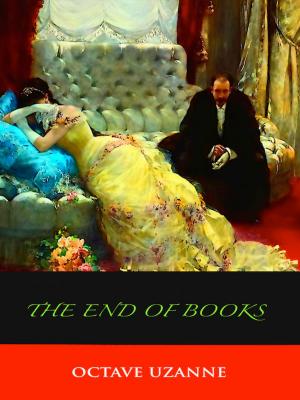| Author: | August Strindberg | ISBN: | 1230001521092 |
| Publisher: | Editions Artisan Devereaux LLC | Publication: | January 25, 2017 |
| Imprint: | Language: | English |
| Author: | August Strindberg |
| ISBN: | 1230001521092 |
| Publisher: | Editions Artisan Devereaux LLC |
| Publication: | January 25, 2017 |
| Imprint: | |
| Language: | English |
“I should like to see your blood flowing! To see your brain on the chopping block! All your sex swimming in a sea of blood!”
August Strindberg was thirty-nine and living in Denmark when in 1888 he wrote his best known drama, Miss Julie, which challenges traditional class conflicts through fateful power struggles between a lustful tease Julie, and her servant, Jean, chilling performances fuelled by sex, violence, death and power.
The play is set in the servants’ quarters of a regal manor house during the 1880s, the backdrop to a dark psychological drama that sees a young aristocratic man-hating woman driven to satisfy her uncontrollable sensuality by abandoning herself to her father's valet.
As the psychosexual struggle develops between them, Miss Julie loses control and becomes submissive to her calculating servant.
Julie must face the fact that Jean is the stronger person.
Initially banned in Sweden, time has allowed Miss Julie to mellow from an enigmatic attempt to look at the social issues of women's place in the changing social order, into a timeless modern tragedy.
Once Jean and Julie have seduced each other, their lives are irretrievably changed; the aristocrat becomes the slave of the valet—and the valet becomes the aristocrat as Julie lowers herself beyond redemption.
AUGUST STRINDBERG (1849–1912) was a prolific Swedish playwright, novelist, poet, essayist and painter whose career spanned four decades, during which time he wrote over 60 plays and more than 30 works of fiction, autobiography, history, cultural analysis, and politics. A bold experimenter, he explored a wide range of dramatic methods and purposes. Many of his theatrical innovations have influenced such writers as Tennessee Williams, Eugene Ionesco and Harold Pinter. He is considered the "father" of modern Swedish literature.
“I should like to see your blood flowing! To see your brain on the chopping block! All your sex swimming in a sea of blood!”
August Strindberg was thirty-nine and living in Denmark when in 1888 he wrote his best known drama, Miss Julie, which challenges traditional class conflicts through fateful power struggles between a lustful tease Julie, and her servant, Jean, chilling performances fuelled by sex, violence, death and power.
The play is set in the servants’ quarters of a regal manor house during the 1880s, the backdrop to a dark psychological drama that sees a young aristocratic man-hating woman driven to satisfy her uncontrollable sensuality by abandoning herself to her father's valet.
As the psychosexual struggle develops between them, Miss Julie loses control and becomes submissive to her calculating servant.
Julie must face the fact that Jean is the stronger person.
Initially banned in Sweden, time has allowed Miss Julie to mellow from an enigmatic attempt to look at the social issues of women's place in the changing social order, into a timeless modern tragedy.
Once Jean and Julie have seduced each other, their lives are irretrievably changed; the aristocrat becomes the slave of the valet—and the valet becomes the aristocrat as Julie lowers herself beyond redemption.
AUGUST STRINDBERG (1849–1912) was a prolific Swedish playwright, novelist, poet, essayist and painter whose career spanned four decades, during which time he wrote over 60 plays and more than 30 works of fiction, autobiography, history, cultural analysis, and politics. A bold experimenter, he explored a wide range of dramatic methods and purposes. Many of his theatrical innovations have influenced such writers as Tennessee Williams, Eugene Ionesco and Harold Pinter. He is considered the "father" of modern Swedish literature.















